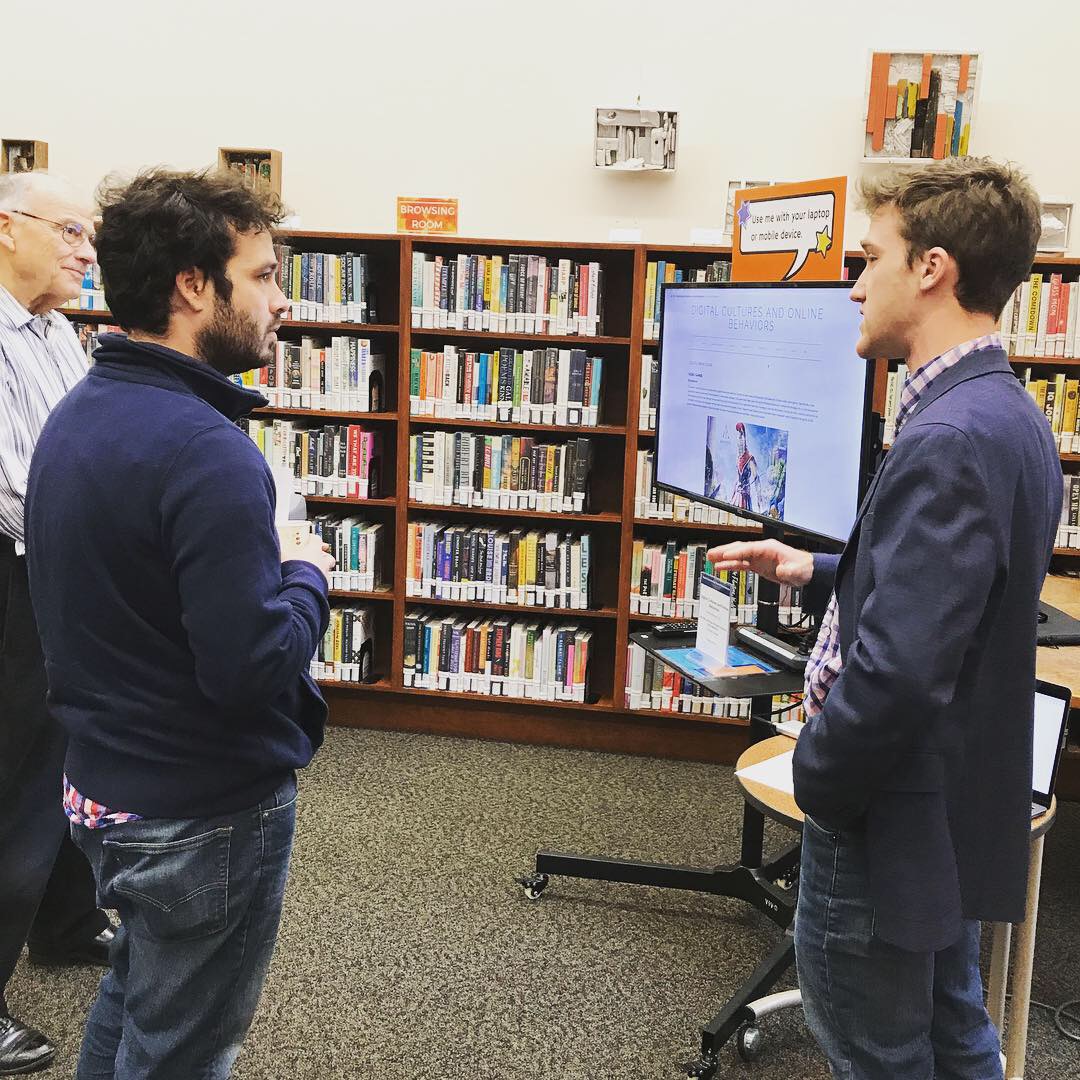College Rolls Out Web Page Detailing Strategies for ‘Academic Continuity’ As Colleges Nationwide Cancel In-Person Classes Amid Coronavirus

Daniel Reeves ’19 presented on Digital Cultures and Online Behavior for his SOC 250 course under the Digital Literacy grant (File photo courtesy of Musselman Library)
By Benjamin Pontz, Editor-in-Chief
The college has launched a web page and a website on Moodle, the college’s learning management platform, to help faculty members plan for the possibility of delivering instruction online as colleges across the country have paused or canceled in-person classes and meetings for the remainder of the semester.
“At this time, no actions are being taken for an imminent transition to remote teaching at Gettysburg,” the web page states. “However, instructors have been advised to take appropriate steps to prepare, just in case the campus is asked to move in that direction.”
While no plans have yet been made to extend spring break, which is currently scheduled to run through Sunday, Mar. 15, or to move instruction online, the web page suggests that some alteration to course instruction is a real possibility and that instructors may want to begin to prepare.
“Consistent, clear, reliable communication from instructors is a crucial element of successful online teaching, especially in an emergency scenario,” the web page states. “Good communication builds course community, creates a sense of presence, and helps students understand that this is a real course with expectations that are not much different from your face-to-face course.”
The college has experimented with online learning the past three summers through a hybrid course model that the faculty approved for permanent use last spring. Faculty members who have taught courses have given mixed reviews as to the efficacy of the approach and its faithfulness to the ideals of liberal arts education.
Assistant Professor of Music Bill O’Hara, who taught a course on video game music online over the summer, said that the traditional conception of online learning as a series of videos and quizzes need not limit what pedagogy can be delivered remotely.
“In a way, it actually felt like I had a lot more direct contact with my students. I was reading their writing responses at least every other day,” O’Hara said in an interview with The Gettysburgian’s podcast, On Target, in Mar. 2019. He added that he chatted with students regularly as well and was able to assess progress in real time. “It does feel very personal. I put a lot of attention into trying to translate the course directly in a way that feels true to the Gettysburg experience.”
He noted, though, that video chatting was a challenge given that many technology tools cap the number of video conference participants. The college has promulgated Zoom as an alternative to Skype. Zoom allows up to 100 participants, but meetings can be only 40 minutes long in the free version.
From a pedagogical standpoint, at a faculty meeting last March, Associate Professor of Economics and Harold G. Evans Chair of Eisenhower Leadership Studies Brendan Cushing-Daniels said, “I don’t think this is what we do at Gettysburg College.”
Only about a dozen professors have taught online hybrid courses before, and the learning curve is steep.
Director of the Johnson Center for Teaching and Learning Josef Brandauer referred questions about online pedagogy to college spokesperson Jamie Yates, who did not immediately respond to a series of questions about the faculty’s level of readiness to teach online, how prepared the college is to support faculty in making that transition should it become necessary, and what could happen with courses such as studio art, music lessons and ensembles, and science labs that cannot require specialized equipment or in-person interactions.
The number of colleges that have moved classes online is growing by the day.
If you’re a Gettysburg student, we want to know how you’re handling the college’s response to the coronavirus. Tell us (anonymously if you prefer) by completing this form:
